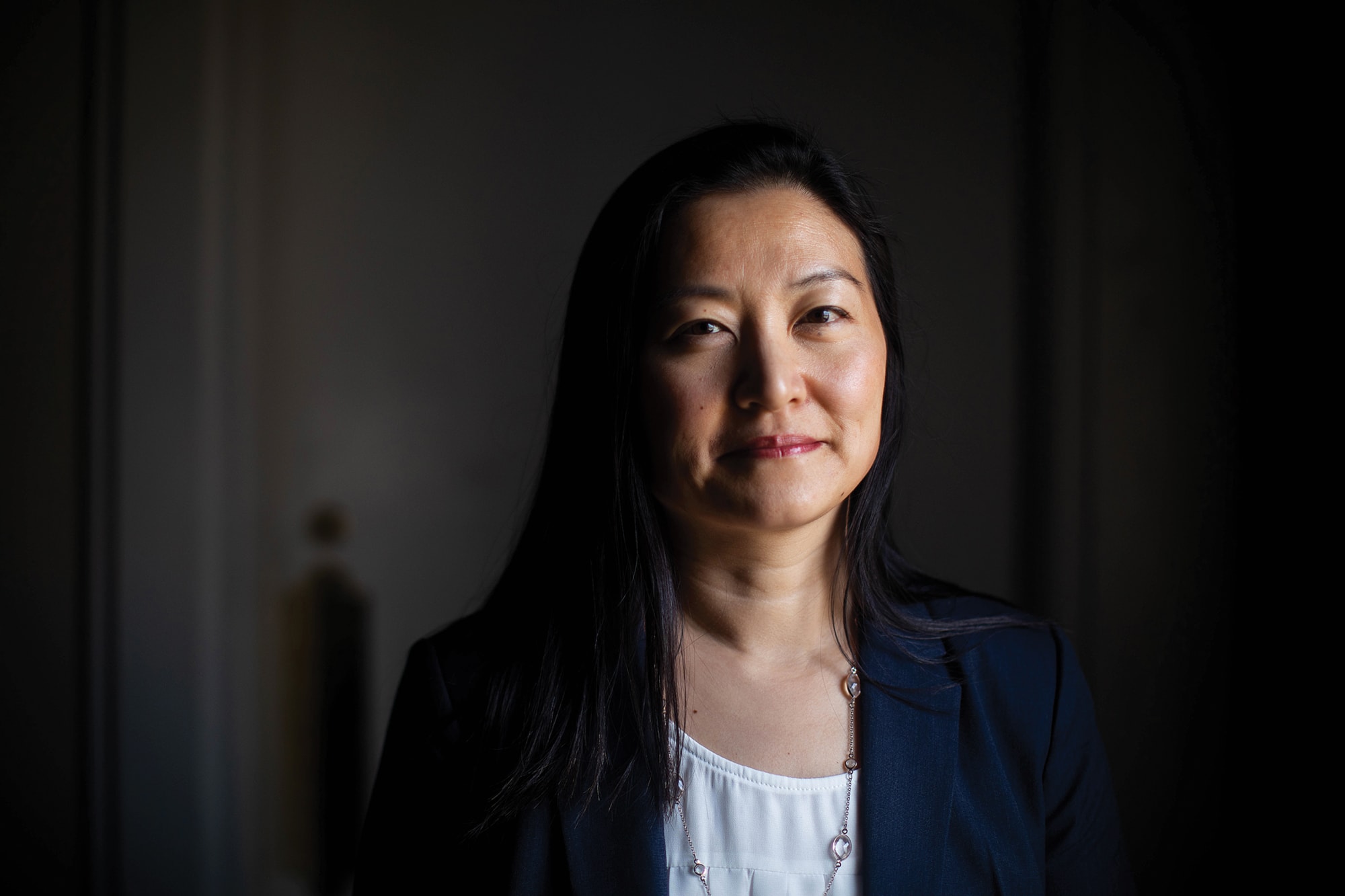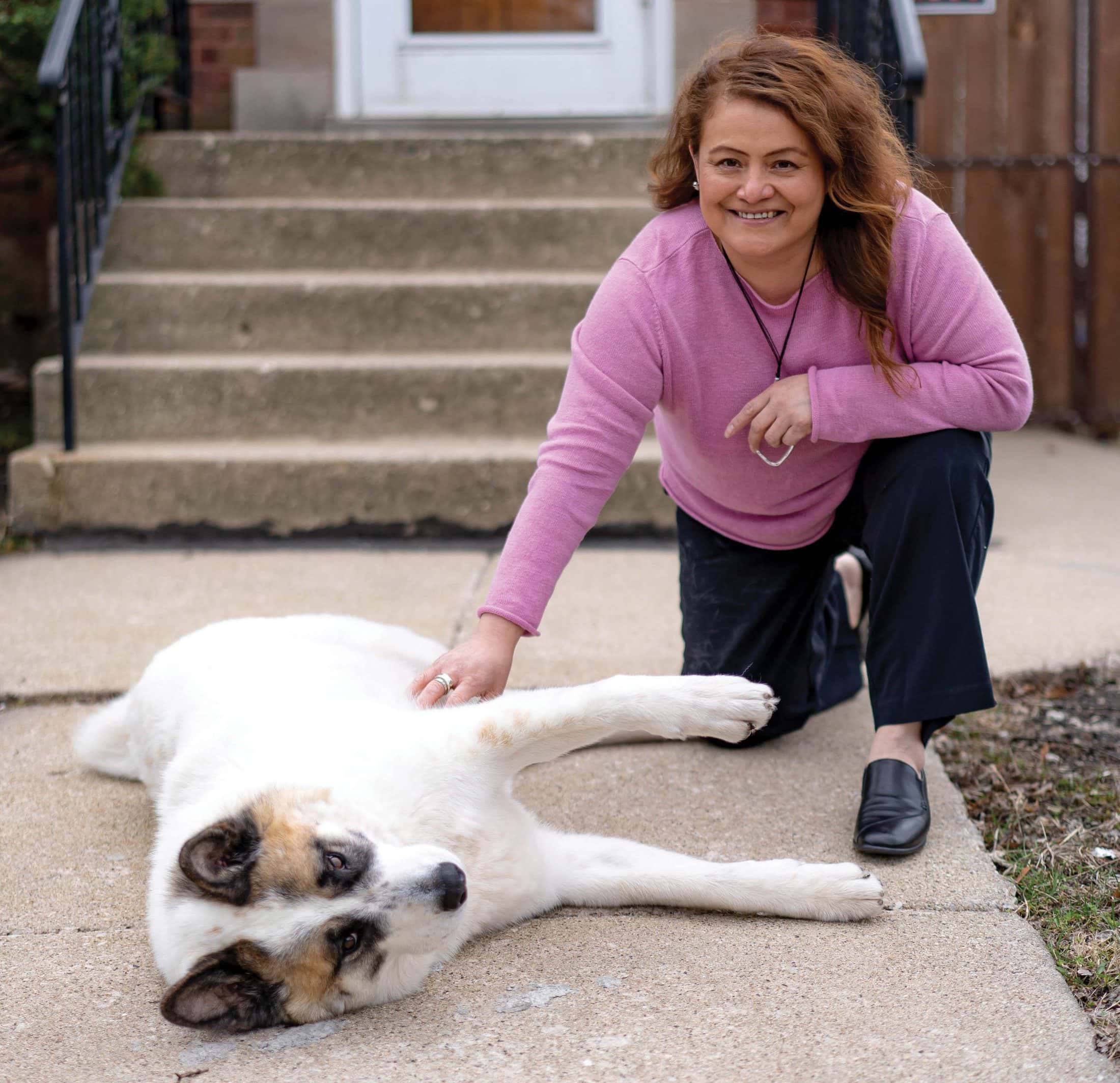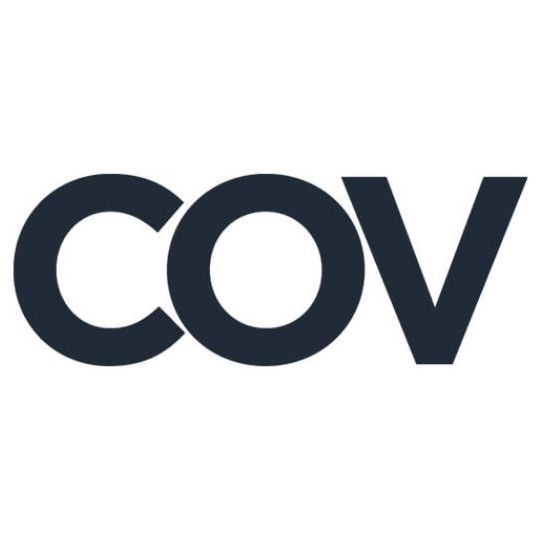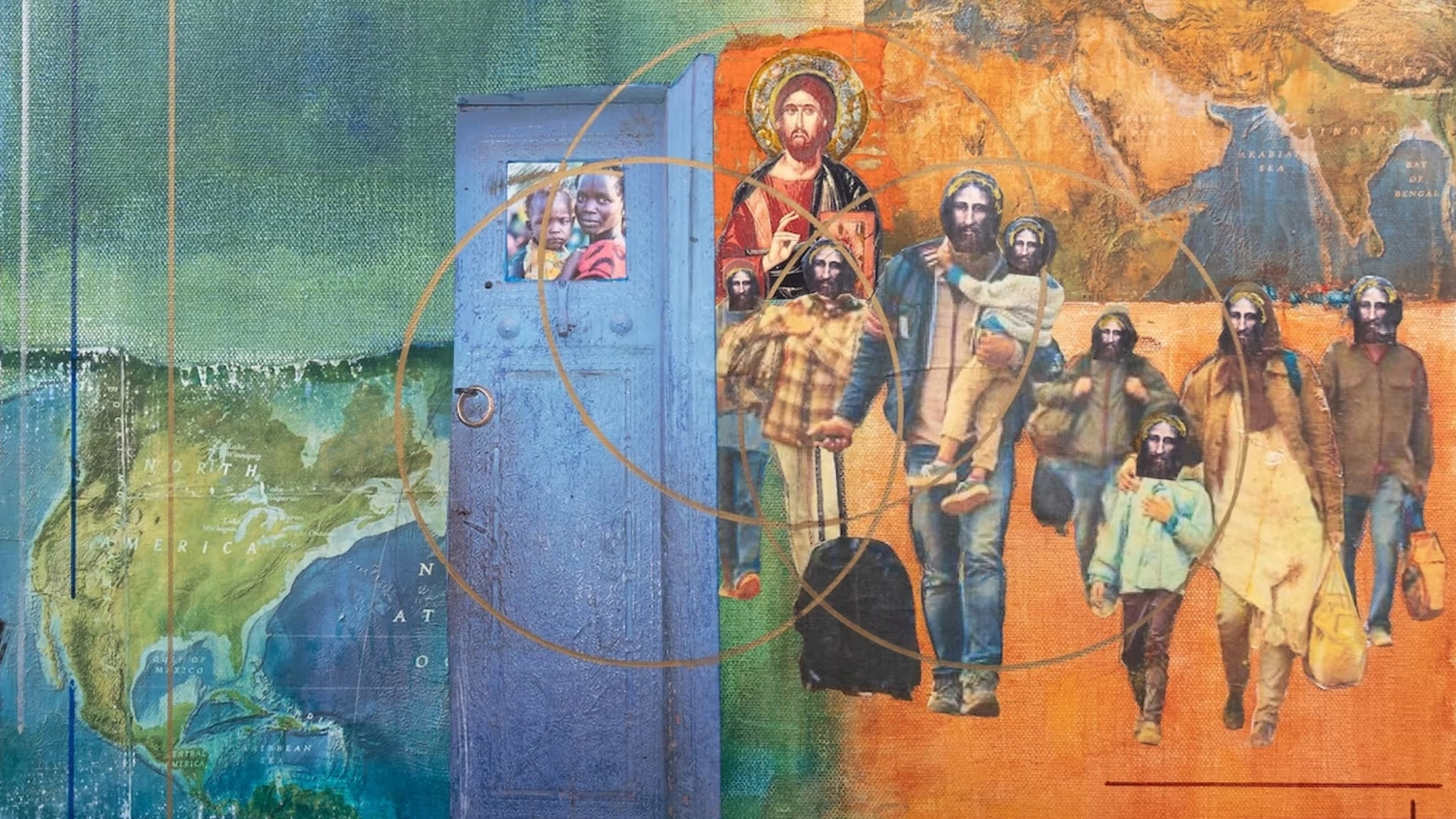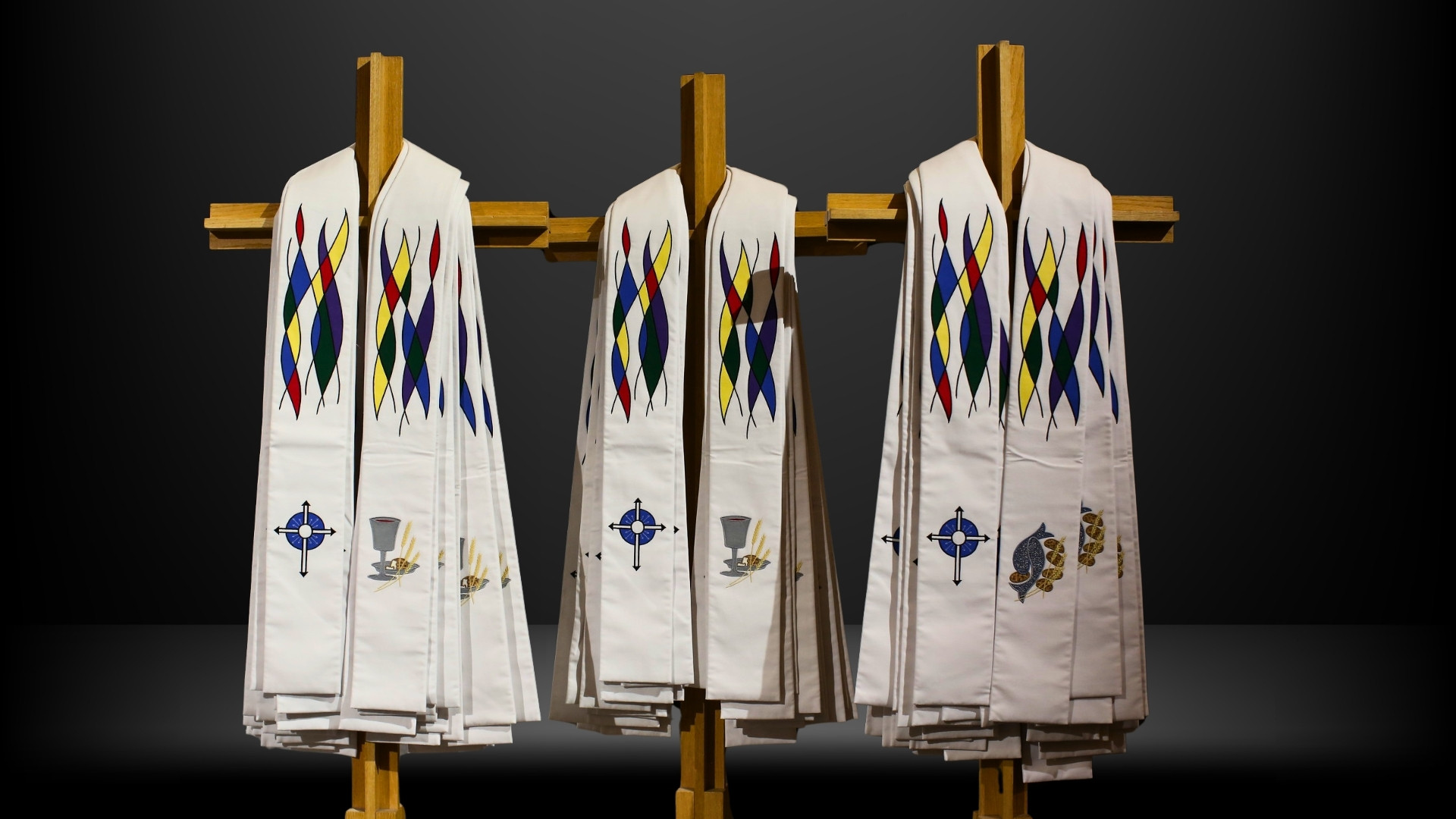Leaning into our Commitment to be the Multiethnic Family of God
Population
G. Dany Flores
Pace-Setting
Bryan Murphy
Participation
Evelyn Johnson
Greg Yee
Purposeful Narrative
TJ Smith
The Six-Fold Journey
Mary Chung March
Chair, the Mosaic Commission
In the mid-1800s the forebears of the Evangelical Covenant Church began arriving in America as immigrants, many working on farms or as domestic servants.
Against that backdrop, the Covenant Church took root in the U.S. Our denomination was born in a new land in an immigrant context. Our founders understood and affirmed God’s call to live out their commitment to the whole mission of the church as stated in our third Covenant affirmation: “People of shared faith who came together to carry out God’s mission both far and near and follow Christ’s two central calls. The Great Commission sends us out into all the world to make disciples. The Great Commandment calls us to love the Lord our God and our neighbors as ourselves.”
Nearly a hundred years later, Grace Covenant Church in Compton, California, joined the Covenant, with Robert Dawson becoming one of the first African American pastor to join the Covenant. Oakdale Covenant Church in Chicago began its transition to a predominantly African American congregation in 1969, when they called Willie Jemison as their first Black pastor.
On March 3, 1991, Rodney King was badly beaten by Los Angeles police officers—and the beating was caught on video. When a jury acquitted four officers for use of excessive force, an eruption rippled through the nation, most devastatingly through communities of color.
On the heels of that pain and time of reckoning, Covenant African American leaders approached President Paul Larsen at the 1992 Annual Meeting to ask if their denominational family was aware how much they were hurting. The conversation set into motion a more substantive engagement and conversation with Covenant leaders and pastors of color.
The Great Commission sends us out into all the world to make disciples. The Great Commandment calls us to love the Lord our God and our neighbors as ourselves.
That year, the Black Pastors Association gathered. It was ratified at the 1993 Annual Meeting in Greeley, Colorado. That same year, New Life Covenant Church was planted in Atlanta by Robert Owens, the first African American pastor to plant a Covenant church in an under-resourced area. The association name was changed to the African American Ministers Association (AAMA) in 1994-1995.
During the 1970s, long before the Ministerios Hispanos de la Iglesia del Pacto Evangélico Association (now ALIPE) was formed in the mid-1990s, the Covenant established our first Hispanic/Latino churches in the U.S. in Chicago, San Francisco, and Bell Gardens, California.
The Korean Pastors Association formed in the 1980s and ’90s, and the Covenant Asian Pastors Association (CAPA), which included other Asian American and Pacific Islander pastors and leaders, was formally established in 2013.
As the Covenant intentionally moved toward being a multiethnic church, all Covenant leaders were required to attend a Sankofa journey. Midwinter 1999 launched a two-year theme of “Celebrating Ethnic Diversity” through the vision and leadership of Don Davenport, AAMA president.
Two years later President Glenn Palmberg preached a catalyzing sermon at Midwinter in which he said, “We cannot really move toward something of the most desperate people in the world without joining the fight for justice. Something happens when you imitate Christ.” He continued, “I believe that for many of them, they have chosen to join the Covenant because they have been led to believe that here is a biblical, evangelical denomination in which, when they stand up for issues of justice, they will not have to stand alone.” His words continued our trajectory toward the creation of the Five-Fold Test.
The ethnic commissions began conversations around creating a framework to measure our progress. In 2004, Gary Walter, who was serving as executive minister of Church Growth and Evangelism (now Start & Strengthen Churches), penned a draft of what would become the test in cooperation with Harold Spooner, vice president with Covenant Ministries of Benevolence. They organized a symposium in Mundelein, Illinois, with key Covenant leaders to evaluate the validity of the test and develop goals around it.
After John Wenrich was elected president in 2018, the ethnic association presidents and board members gathered with Covenant leaders to discuss a sixth P, Practicing Solidarity. As John created the focal points for his vision, he identified the Holy Spirit as the Blazing Center of our mission, and the multiethnic mosaic circled around that center. That was huge.
And in 2020, the Indigenous Ministers Association (IMA) was formally established, although Indigenous pastors had been gathering for decades through the informal organizations of the Alaska Pastors Association and the Native American Indigenous Association.
Why is this history important?
The unique beginnings of the Covenant have been a part of our past, present, and future. We recognize our call to live into the whole mission of the church, the call not to be a church with multiethnic ministries but to be a truly multiethnic church.
We are being called to continue to live into the Six-Fold Test. God called the Evangelical Covenant Church to be on mission together for God’s kingdom in 1885, in 1992, in 2021. And he is calling us now.
Population
by G. Dany Flores
Covenant Church Planter
My story begins in Mexico. When I moved to Chicago, I became the first generation of believers in my family. My husband, Sergio, and I quickly immersed ourselves in the church, and we raised all three of our kids, Meztli, Tietl, and Citlalli, in the church. In 1998, we planted our first church on the South Side of Chicago.
In the Covenant I have served in many roles in both the Central Conference and in the denomination. Currently I am planting a church in the Chicago area that will serve the Latino community. I want to give back to my community not only by bringing the church to them, but by also bringing opportunities for them to develop in their lives.
I believe that if leadership reflects people I can identify with, the Covenant will continue to reach increasing numbers of people among the Latino community. It is important not just to have Latinos in leadership but also to continue to affirm women and younger generations. This diversification will help the Covenant to understand the influences and nuances of our culture. It is powerful to see someone who understands my culture, looks like me, and speaks my language in leadership.
One example of the need to understand these nuances is the use of the term “Latinx.” This term has gained traction in some circles as it aims to be inclusive and non-binary. Yet the reality is that many families in our congregations do not want to be called Latinx. We take pride in our heritage, and this term seems to be an attempt to solve a problem that people outside our culture want to solve. This can come across as an effort to be “woke” at the expense of our beautiful language. In addition, the Real Academia Española (the official body of linguistics in Spanish) has formally rejected the term.
In the Latino church, spirituality and religiosity are interwoven with our daily lives. Some conversations in the majority culture tend to be heavily academic. But if a member of my congregation has a choice between attending an informational workshop and a prayer service Wednesday night after work, they are likely to choose the prayer service. If the only options are educational, that can hinder our participation.
The Covenant can also reach increasing numbers among our community by expanding seminary course offerings for us. More classes in Spanish would encourage us to enroll in seminary and would create more opportunities for leader development. That would give more women and younger generations a voice at the table as well.
We also would like more Covenant resources translated into Spanish, including on complicated topics that impact our community such as immigration. Immigration policy is not “one size fits all,” and decisions vary case by case. Applying for Deferred Action for Childhood Arrivals (DACA) status is very different from applying for a Religious Leader visa, or from refugees seeking asylum. Having Covenant people with knowledge regarding the complexity of this system and a list of resources on the website would help Latino pastors adapt those to their ministry context, rather than having to start from scratch.
Creating events, both big and small, where the Latino church can feel safe, where we can share our dreams and aspirations, and where people listen to us and partner with us to achieve those dreams would also reach more people. Having a good setup for the younger generation to stay in the church, grow, and succeed there will include more populations. Those spaces can make such a difference for the Latino church, to know that the Covenant is here for us with open arms, with resources for us to succeed, with healthy leaders who understand our context will demonstrate that the Covenant family is waiting for us.
Participation
Evelyn Johnson & Greg Yee
Former Superintendent, Pacific Southwest Conference
and Superintendent, Pacific Northwest Conference
The Companion sat down for a Zoom call with Greg Yee, superintendent of the Pacific Northwest Conference, and Evelyn Johnson, Crescendo team leader and former superintendent of the Pacific Southwest Conference, about participation.
Evelyn: The journey for me began in 2000 when I began my role as superintendent of the Pacific Southwest Conference. I knew my call was to advance the multiethnic mosaic in our conference.
In particular, regarding participation, I remember Russ Knight, who was president of Chicago Urban Reconciliation, saying at a CHIC planning meeting, “Don’t think that you’re going to plan the party, invite them, they will come, and enjoy it.” I had that in mind as we were seeking to be intentional about diverse representation in our conference. Just because there’s presence doesn’t mean there’s participation that is felt like participation from the perspective of a person of color.
In 2003, we were meeting with David Gibbons, the founding pastor of Newsong Covenant Church in Santa Ana, California. He and Peter Cha had been serving as part-time coordinators of the Covenant’s Asian American ministry, and they were ready to step aside. There was this person they’d worked with who they thought would be perfect.
So I made a phone call to one Greg Yee. At the time I needed someone on staff in the area of leader development. That was critical to advancing the multiethnic mosaic. Lo and behold, Greg was very interested and passionate about the area of forming leaders. The conversation began, and he came on staff in August 2003.
Greg: When I tell the story, I always start in 1992 when Los Angeles was burning and race tensions were high and Paul Larsen, who was president of the Covenant at the time, was facing that. When you look at what we’ve experienced this past year and the social unrest in 1992, it’s really not that different. Social upheaval. Racism coming to the surface.
When you combine the race conversation at that time and the impulse of mission going forward through churches planting churches, it was a perfect convergence. Looking back now, we say, “Of course! God was putting all of this together for this trajectory for us.”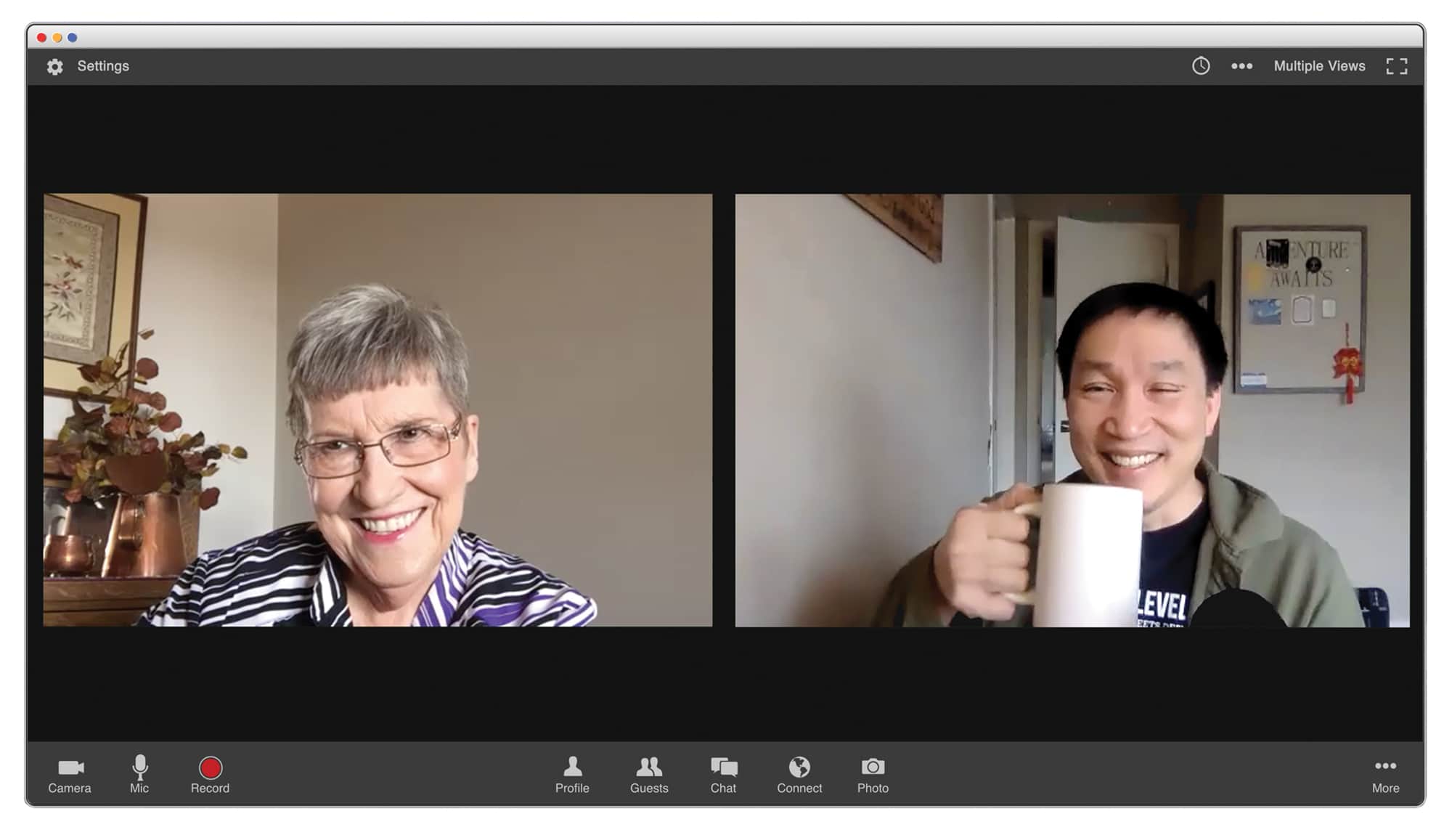 Evelyn: I was part of the Council of Administrators during that journey, through the Rodney King riots, through Paul Larsen meeting with the ethnic leaders. I remember him saying, “I’m here to hear how we can improve. What can we do?”
Evelyn: I was part of the Council of Administrators during that journey, through the Rodney King riots, through Paul Larsen meeting with the ethnic leaders. I remember him saying, “I’m here to hear how we can improve. What can we do?”
Greg: In 2003, Evelyn came to me, saying, “The Pacific Southwest Conference is changing. The mission field is growing younger, more urban, more multiethnic.” I remember those three characteristics. She said, “That’s the mission field, and I need that on my team.”
I asked her, “Aren’t those positions for pastors in their last tour of duty, the ones who have served for decades in ministry?” I was questioning my own competency. She said, “Greg, this is what I need for the mission. All that other stuff—I will walk with you.”
In the eight years we worked together, I saw that those weren’t just empty words for her. She empowered me, let me fail, and never made me feel bad about it.
Before I joined her staff, a position opened on the Board of the Ordered Ministry. A first-generation Korean pastor had not finished his term, and his spot was slated as an “ethnic” position. Donn Engebretson approached me—and suddenly I was on the Board of Ordered Ministry! It was like being thrown into the deep end. It was a major education, a major time of being immersed, of being empowered.
In large groups I’m not the one who’s going to be the most talkative. Certainly my Asian culture tells me, “Let the older people in the room talk first.” I was nearly the youngest person on the board. Donn Engebretson pulled me aside at one of the breaks, looked me in the eye, and said, “Greg, it is so good to have you on this board. I want to encourage you because your voice is so important. I don’t want you to ever feel like you have to hold back. We really need to hear your voice.”
That sticks with me today. It was an invitation to participate. He was saying, “We can’t do this without you.” That was so key.
Evelyn: Those first couple of years you were there were some of the hardest for the team. Thankfully, we were able to build a relationship that was based in trust. It emerged that you would be honest with us.
We were preparing for our conference annual meeting, which we called Celebration. We came face to face with the fact that we had different dimensions of celebration. For example, we were requiring tickets to attend meals. But that was a foreign concept to our Latino community. We had two Latinos on staff, and they informed us that in their culture, there’s always room for everyone.
So I went around grabbing tickets from Executive Board members and staff so we could give them away. That was part of our learning about this area of participation. Our system was implicitly shutting people out because of various white-centered ways of doing things.
We never had tickets after that.
Greg: I double-underscore Evelyn’s words that we built a foundation of trust.
Not long after I joined the conference staff, I went on my first Sankofa with Walter Contreras. It was very confusing to sit in the position of a non-African American on that journey, yet a decent percentage of what was being shared overlapped with my experience. I understood that it was about the African American experience, and it was powerful. But it was unsettling for that overlap not to be acknowledged.
Later, Walter and I were sharing this with Debbie Blue, who was director of adult ministries with Christian Formation, and Evelyn. We started talking about the concept of a multiethnic experience similar to Sankofa but with other cultures. As those conversations continued, Evelyn eventually turned to me and said, “I’ll give you the next nine months to work on it.”
It took all nine months.
On the pilot journey, we traveled from the Oakland area down to Los Angeles. The night before we started, I was literally on my knees in my hotel room praying, “God, help me to have a job after this.” I was terrified! Our first stop was with a founding member of the Black Panther party. I just didn’t know how it was going to go.
I had planned it all out by the minute—the movies, the experiences, when we were going to have discussions. I literally had a spreadsheet of how everything would go. By the second day, I was beside myself because nothing was going as planned. At a lunch stop, Evelyn said, “Greg, that’s just good leadership. You do all the planning you can, and then you let go and let the Holy Spirit take over.”
And that’s what happened. It did not go as planned. At all. But God met us in powerful ways. We ended up doing more than 30 Journeys to Mosaic while I was on her staff.
Evelyn: For a long time we’d sort of lived with the illusion that being at the table meant participation, or being at Covenant events meant participation. But we became increasingly aware that if participation was truly going to be something other than “presence,” we needed awareness. We needed to know their story and be able to come to the table humbly and acknowledge that we’re all one.
Greg: When we talk about participation, it’s one thing to plant or adopt churches and recruit folks from different communities. We like to celebrate those stats about how diverse we are. Right now 27 percent of the churches in our conference are multiethnic or non-English-speaking. That looks great on paper.
But what does life together really look like? We’re trying to be intentional with our social media and think about what goes out during our annual meetings, etc. But we have to pour resources into getting everything into Spanish. And then we have Nepali, Chinese, and Korean populations as well. Those are smaller numbers, but if we’re really this mosaic, we have to be multilingual as well. We have to make sure everybody is feeling like they truly are part of this—that they can participate because it’s in their mother language. Those are real growth areas for us.
Evelyn: We’ve got to move beyond assuming that the way people of color participate is to try to live into white norms. That is not going to get us where we need to go. We’ve talked about that in the anti-racism group I lead. For a lot of people, including myself, for many, many years I did not see that assumption for what it is.
Greg: In the U.S., we have a majority culture, a mainstream culture. And because of the power embedded there, that culture defines what is normal and what is not normal. It defines what is mainstream, what is not, who is in charge, who’s subservient to those in charge.
You can’t get away from having a culture. You can’t be a-cultural. Being able to see that is where the magic is. What if we could step back and acknowledge that a culture has developed? Then let’s go a little further—how did it develop? As it developed, how has it affected other peoples? When we look at ourselves in the Covenant, how do we understand that this culture has defined and influenced how we do ministry?
Diversity, tapestry—we use all these different words to describe God’s variety and greatness. The ways we all represent that, not just through our skin color but through our cultural expressions and nuances will help us to be stronger. If we continue to say we can only understand who God is through one cultural expression, we’re limiting ourselves.
Evelyn: The phrase “image-bearer” is a great way to think about this. All of us are image-bearers.
In 2012, we were doing a review of the Five-Fold Test, and I spoke with Soong-Chan Rah, professor of church growth and evangelism at North Park Theological Seminary, to get his insights. He really focused on participation. He said, “You’ve got to have populations before you can have participation. But authentic participation is what will make the difference.”
Greg: I think that’s why practicing solidarity became the sixth P. We can even change the power dynamic in significant ways, but if we’re still not each other’s family, then where are we heading? Are we just trying to be a more politically correct denomination? No. It’s family, it’s the outpouring of the gospel.
A few years ago, I remember being at a point of pretty high frustration and asking a colleague, “Do you ever think about leaving and going back to your community?” Because our communities need us too, they need our perspectives. She said, “Where are you going to go? This is a calling. It’s our family.” Our Native American brothers and sisters often say they make decisions for the seventh generation. I really embrace that. In our instant gratification culture, God’s economy is way bigger than what I want for this moment. Stay faithful, people!
Evelyn: To my white brothers and sisters, I would add, just keep learning and following Jesus. Go where he goes, where he already is. Maybe we’d better catch up!
Power
by Juana Nesta
President, Asociación Latina de la Iglesia del Pacto Evangélico (ALIPE)
I have the privilege of serving on the Covenant Board of Nominations, which is a seat of power in our denomination. Nobody can serve on our Covenant boards unless they are nominated and processed through that board. And our boards represent all of us in the church.
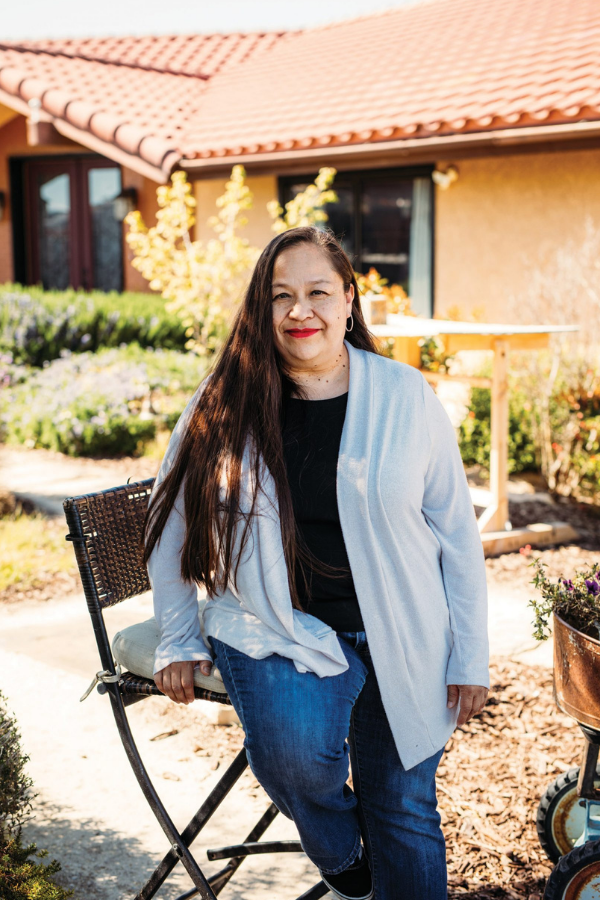
At this year’s Annual Meeting delegates will vote on proposed changes to the Covenant Bylaws to address ethnic representation on these boards. These changes will address some disparities and allow for more equity for people of color. Being able to make those shifts through bylaw changes—that’s where the power is.
I advocated for those changes because there are certain criteria for ethnic representation on our boards. In the current Bylaws, the representation is two people on a board of nine, or one of each ethnicity on a board of 26. Meeting those minimum requirements does not mean you are making access to power equitable. The Covenant has been working hard to improve in this area, rather than being satisfied with just having the right optics.
As a denomination, we are not just looking for optical representation. We are looking for actual representation. So if that means we have six people of color on one board at one time, we should be celebrating that! People in the dominant culture can help make that happen by sharing the power.
Even though we are on the right trajectory and we’re saying the right things, there is still work to be done in terms of power being distributed evenly and equitably.
We are aware that to be a mosaic family together, the power dynamic cannot favor some and not others. We recognize that we need to address areas where power, voice, and vote are not equally shared or distributed across our diverse populations. We need systemic change. A commitment to change comes in written form. If we are going to embed shared power in our ethos, that needs to be written into being. It is not official until it is written down! This is why our president John Wenrich supported the proposed bylaw changes.
People of color do not organize around Robert’s Rules and board models as often as their majority culture counterparts do. Not having that understanding can put us at a disadvantage in a few ways.
The African American Ministers Association (AAMA) and Asociación Latina de la Iglesia del Pacto Evangélico (ALIPE) are hosting peer mentoring sessions to teach our members about Robert’s Rules and what is expected of us when we serve in these capacities. We are being proactive so that people are ready to serve—and not set up for failure. If people are not trained and prepared, they get a bad taste in their mouth.
Another obstacle is resources. Most ALIPE pastors are bivocational. In the majority culture, that is less often the case. But as a first grade teacher and co-lead pastor, I do this commission work and lead as ALIPE president on a volunteer basis. Most people are not able to go to such lengths in their voluntary service.
It is very hard to be able to get more out of bivocational people. The people who we really want to help represent us are sometimes not available—not because they don’t want to, but because they really cannot do it. It is a financial burden.
I have served on Covenant boards for 10 years now. When I take time off from my job, that money is taken out of my paycheck. So I am actually paying to volunteer and serve, as opposed to being compensated for my time. That happens often—I am not unique there. Within the Latino culture and for a lot of people of color, that’s a hardship.
The same is true for annual events. Gather is online this year. For the majority culture that means everyone will be there, everyone will get their vote because they have two, three, four electronic devices in their home, let alone their churches. That’s not necessarily true for the Latino community. So ALIPE is developing a campaign to call people and say, “What can we do to help you be able to participate in Annual Meeting?”
Many times people think that sharing means you are losing. But not if we are about the kingdom. If we are about the kingdom, it is all a gain.
When Covid started and everything shifted online, we held a four-hour training for our Latino pastors and lay leaders. There were almost 100 people on the call because they did not know how to do digital worship. ALIPE leaders were literally calling people saying, “Okay, turn on your screen. Can you Facetime me? Oh, you don’t have a cellphone that can do that? Okay, let me share my screen.” It took weeks, sometimes months to get some of our pastors up and running. Now many of them are in a better place, but that doesn’t mean they will be able to manage an online event.
It will take more than accessibility, it will take conversations, training or a practice run, and explanations of all the nuances of a virtual event.
The Mosaic Commission, which is composed of the presidents of all four ethnic associations, meets regularly with President John Wenrich, and as we continue to speak into this conversation, we are very grateful for this time.
In January 2020, the Mosaic Commission had the opportunity to meet with the Council of Administrators and the Council of Superintendents in a historic gathering where we engaged in deep discussion around Six-Fold Test dreaming, planning, and implementation. For them to hear from us, “This is why the Six-Fold Test is important and needs to be implemented in your conferences, churches, and the denominational team” was a huge win.
There is a big difference between people of color being represented well and having a person who is our ethnicity but not at all connected with the ethnic associations or interested in representing us. If you just have “yes” people at the table, you do not have true representation. If you have people who are speaking on behalf of the people they are representing, that’s a big difference. We need the latter if we are going to live into the idea of the multiethnic mosaic.
We need to share the power. I cannot say that enough. Put that in bold. Say it with capital letters: Share. The. Power! Share it with people of color and with women who are not represented in equal manner. It is often assumed that if we have a white woman in power, we are good. In the stratosphere of power, it’s white men first, then white women, then men of color, and then down at the bottom are women of color. And Latinas are always at the way, way bottom, with the Indigenous Americans. This is why we need a willingness to share power.
Many times people think that sharing means you are losing. But not if we are about the kingdom. If we are about the kingdom, it is all a gain. If we are about the kingdom, we live into the multiethnic kingdom reality of being a family on earth as we will be in heaven.
Pace-Setting
by Bryan Murphy
President, African American Ministers Association (AAMA)
I recently reread some notes from the retreat in 2004 around implementing the original Five-Fold Test. Regarding pace-setting, they wrote: “Develop partnerships between churches and conferences to resource, create accountability, and encourage growth around justice and multiethnicity.” The establishment of Love Mercy Do Justice (formerly the Department of Compassion, Mercy, and Justice) came out of those conversations.
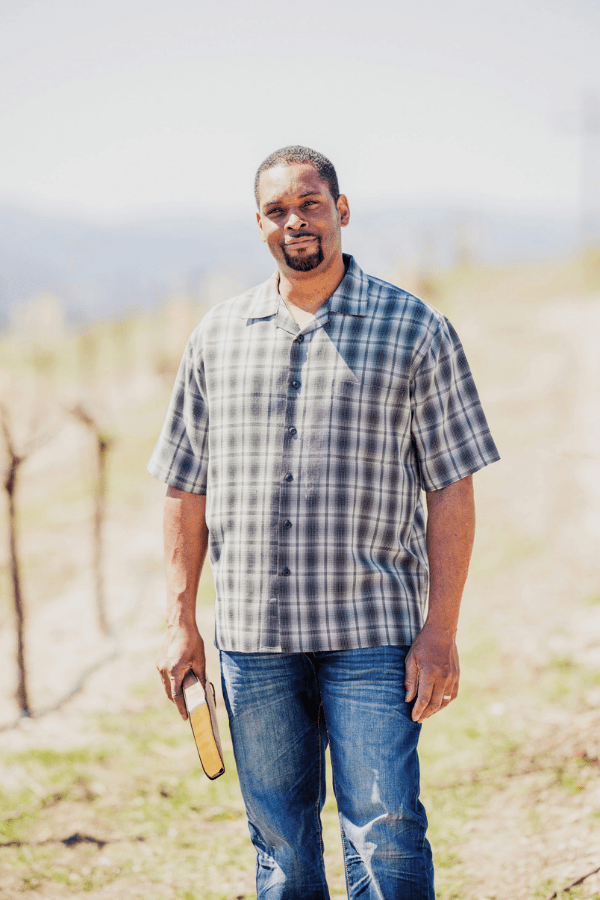
Pace-setting means we now have voices at the table whom we may not normally have listened to. And multiethnic voices often include people who may be connected to or integrated with marginalized communities in deep and personal ways. Giving voice to those folks and hearing their experiences opens up new priorities for us as a church.
So how do we set priorities that perhaps wouldn’t be prioritized in dominant culture alone?
Recent engagements include the anti-racism resolution that was passed by the Ministerium in 2019 and the anti-racism cohorts among our pastors that came out of that. We also are seeking to increase experiential opportunities—the Sankofa journey, Journey to Mosaic, the good work coming out of Love Mercy Do Justice and Make and Deepen Disciples to create resources for children and intergenerational learners. That’s what we’re talking about in terms of pace-setting.
We must also make sure that in our seminary, our conferences, the places where people are providing instruction, and at our national events we have a diversity of people presenting. We have seen some good progress there.
We are taking the Six-Fold Test from being a denominational marker to being a conference and local church tool. That pace-setting move from institutional to local church and hopefully local member is where the transformation occurs.
Moving forward, pace-setting asks how the church engages issues in our society that are kingdom issues cloaked in cultural clothing. For example, we have this debate around social justice and some political topics, where people are asking, Is that the true gospel?
In response, I ask, in which gospel is Jesus not dealing with the politics of his time? Where do we see Jesus not concerned with the poor and the marginalized? Those aren’t just social issues separate from the gospel—those are the core of the gospel. These are people Jesus compels us to love and serve and eat dinner with.
Issues of immigration, community policing, mass incarceration—these things not only affect believers and people in our own Covenant family, but they have kingdom implications. Throughout history, the church is usually on the back end of responding to such issues. Pace-setting means we’re not waiting for the world to move before we respond—it means we are leading the charge.
Pace-setting means we are hearing directly from the people in those marginalized communities. It means we are diversifying our mode of church planting beyond the white suburban model.
And the centrality of justice to the message of the Bible should not be considered secondary—it’s an essential component of discipleship. That means we are weaving it in, not as an add-on, not as a “nice to have,” but as a core element of being followers of Jesus Christ.
In 2004, our leaders were talking about building intentional on-ramps for people of different ethnic backgrounds to be trained as missionaries. There has never been a good pipeline for people of color being sent out. I know we have been more intentional about people of color leading in this area. I don’t think any denomination is doing that very well. We should be figuring out how to lead well here.
Pace-setting means we are hearing directly from the people in those marginalized communities. It means we are diversifying our mode of church planting beyond the white suburban model.
In my view, the Covenant is far ahead of many denominations in this work. But pace-setting means we are not satisfied with the success of the past. We must realize that this work is not finished until God brings us all to glory.
As we continue to make space for people along the ethnic and socioeconomic spectrums at the table, we must set priorities and determine where money and resources are allocated. We should underline that! If you really want to poke the bear, we’re not there yet. Often we are not in the conversations on distribution of funds.
The Covenant has done a good job of inviting a diverse group of people to the table. The next step is to make sure those voices are heard once they’re sitting there. Too often issues of people of color are considered add-on issues, as if we’re saying, “We’re going to try to squeeze this in.” But pace-setting means all those issues have equal validity.
The preamble to the Six-Fold Test says: “While the Covenant is uniquely positioned to press forward in ethnic ministry and diversity, we must remember that we are ultimately not going to move forward structurally or mechanically….Should this be an exercise in mechanics and technical adjustments, we will fare no better than other groups, secular and religious, that have embarked on similar efforts. We will emerge to our best future as we truly engage life and service together in Christ.”
I think that’s a great way to end this conversation.
Purposeful Narrative
by TJ Smith
President, Indigenous Ministers Association (IMA)
In an Indigenous culture when we are asked a question, many times we share a story.
That isn’t because we don’t have an answer. We answer in a story to allow the Creator to give you the words you may need to hear, not what we think you need to hear.
As we listen to people’s stories, it is important to hear from the heart. When two people connect through story at the heart level, they are connected. Jesus connected across culture, gender, race—through stories, which we call parables.
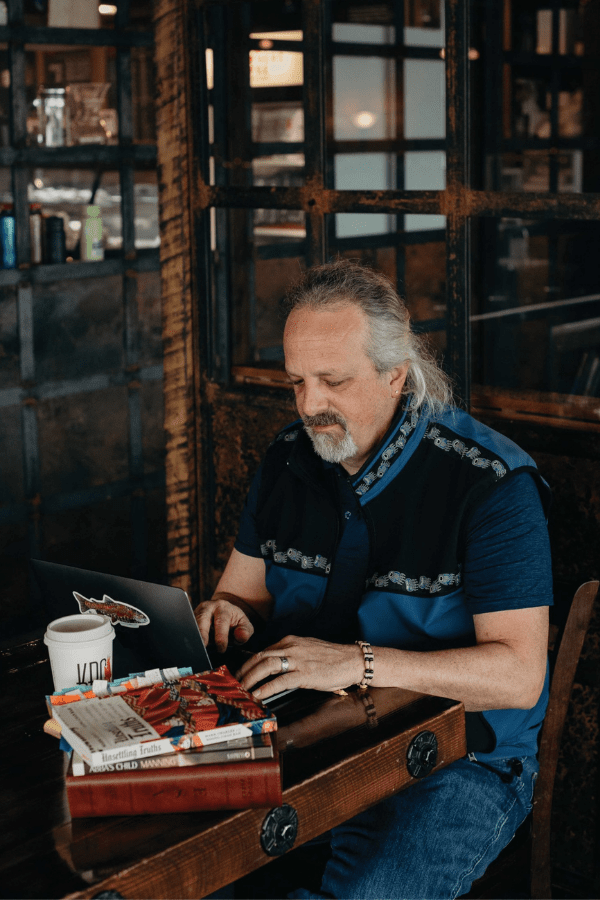
In most Indigenous cultures, we share our stories. We share in our stories an answer to the question we are asked, and we share an aspect of who we are created to be, part of our culture. And if you listen, we share an insight or aspect of the Creator from our journey that perhaps may help you in yours.
I think of our history, our story of the Evangelical Covenant Church, starting with the Swedish immigrants who came to Alaska before we were a state here on Turtle Island. Our story of forming a new Mission Covenant, even as some tried to convince us to reject any organizing structures. We followed our own trail, our own journey.
The story of how those early Mission Friends transitioned from speaking only Swedish to worshiping in English as their children grew. And the narrative changed again as people of color added their voices, culture, and insight to the Creator.
Will we listen to each other’s story? To interrupt another’s story in Indigenous cultures is disrespectful. In our cultures, we share our stories, and we listen, especially when an elder speaks. And those elders have learned to listen to others’ narratives. They have learned from what others in different contexts and cultures have spoken into their lives. When they speak, it is with a purposeful narrative, to guide those who are listening, and for the younger generation to learn for their journey.
In my Lakota culture, we have a phrase, Mitakuye Oyasın. This means we are all related, or all my relatives. I think about us in the Covenant. Yes, every family has its issues, but when it comes down to it, a family listens at the heart of each other if they truly love each other. Culturally for many of us, when we get our first animal in a hunt or fishing trip, we give part or all of the animal to an elder. This gift both honors them and helps them with food. It takes thought and intention as well as humility to give what we have been given. Will we as the Covenant Church, listen to our sisters’ and brothers’ hearts, to ask them how we can serve them—not how we think they need to be served? It takes intention and humility to do this.
In the Covenant, in reflecting Christ, we reflect the purposeful narrative of how the Creator designed each of us. Will we take time to walk with each other and hear our stories, or will we speak over them?
Our Covenant narrative becomes more complete as we incorporate the stories of our communities of color into our overarching story. Every one of us has a story, and every story tells its part of the narrative of the Creator. If we don’t hear at the heart of another’s story, we miss a part of our family story of God. We miss a part that may not be our story but is the story of the One who loves us all. I pray we will hear each other’s stories and through them draw deeper together and to the Creator.
Practicing Solidarity
Mary Chung March
President, Covenant Asian Pastors Association (CAPA)
On a recent Saturday morning, a group of friends gathered at a cemetery in Minneapolis. We stood together in solemn stillness and reverent remembrance. It wasn’t a new grief, but it was still deeply tender. Ten years ago on that date, our friend’s two-year-old son had passed away in a tragic accident. In some ways, it feels like it was yesterday.
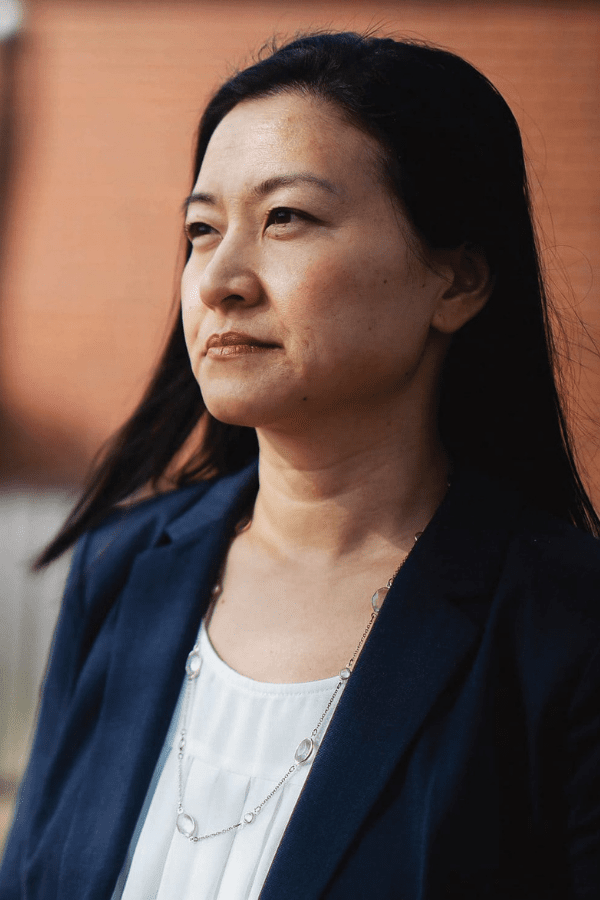
At the time of the accident, we were in a women’s small group together. With trepidation and an invitation by the Holy Spirit, we leaned into her grief with her and committed ourselves to walk with her in her pain. Her loss became our loss. Her family, our family. To the best of our ability, we came around her and loved her. Every year since then, we have met and gathered, standing with her and letting her know she is not alone, her son is not forgotten, and we have not left her side. We don’t always get it right, but with love, friendship, presence, remembrance, food, cutting lawns, and providing house cleanings, we have stood by her side.
As I looked around the gathering of friends that morning, I thought, “This is what solidarity looks like. This is what standing in the gap, holding one another up, and being ‘with you’ looks like.” It’s a group of friends who remain in relationship, choosing to lean in and traverse the journey of grief with one another because you love each other and are committed to each other.
Solidarity is not being able to fix another’s suffering; it is being committed to walking together, leaning in and not leaving when it gets hard. We are onsite with one another, and we choose to honor and protect each other. In suffering, we remember those who came around us. When your child is in the emergency room fighting for his life, you remember who came to your house in the middle of the night to watch your other children. It is a kind of “with you” that says, “I will weep when you weep, I will go where you go, I will be present.”
In the book of Ruth, Ruth says to Naomi, “Don’t urge me to leave you or to turn back from you. Where you go I will go, and where you stay I will stay. Your people will be my people and your God my God” (Ruth 1:16, NIV). In other words, we are family.
The past year has been a season of pain and pivoting as we readjust-ed and realigned our values, voices, and resources. The coronavirus pandemic amplified and spotlighted anti-Asian racism, pulling back the curtain further on the daily reality for people of color. As many have been saying, this is not new reality but rather a more recorded one. Daughters, sisters, mothers, and aunties have been lost. We are in a racial reckoning where ignoring or dismissing this reality is not what our biblical witness calls us to do. Revelation 7:9 reminds us we will gather together in heaven “from every nation, tribe, people and language, standing before the throne and before the Lamb.”
And by this, everyone will know that you are my disciples, if you love one another.
John 13:35, NIV
If we are going to be the multiethnic kingdom family of God in heaven, we need to start acting like the family of God here on earth.
Someone asked me recently, “When do we know we are really practicing solidarity?” I replied, “When it is so apparent to your mosaic brothers and sisters that they no longer have to wonder if you are for them or if you are standing in solidarity with them. They can see it and feel it. They can intuit it and trust you have their back.”
The Mosaic Commission is trying to practice what we preach and be the body of Christ by living the solidarity we want to see. We include each other’s voices, lean on one another, and speak together. We choose not to believe racial stereotypes, but instead choose to be onsite with one another, leaning into each other’s daily lives, pain, and joys. We are committed to standing in the gap for one another. This is what family does. This is how the gospel compels us to live.
As a commission, we have stood by each other and with each other. We worked with Indigenous Ministers Association (IMA) president TJ Smith and his predecessor, Tricia Ivanoff, to lend our voices and advocacy around them as the association was formed unofficially and then officially in 2020. We stood with our Indigenous brothers and sisters and the Christian Action Commission in their work to create and support the resolution to repudiate the Doctrine of Discovery (see p. 59), which will come before the Annual Meeting in June. Together, we recognize that the Doctrine of Discovery was not the way Jesus intended us to use his name.
TJ says, “For IMA and for me, we are reminded that we are not alone, that we are being seen, heard, valued, and asked for our perspective. We are no longer completely invisible, no longer ‘merciless savages’ but people who can contribute to the healing of the world and all people—ours included.”
Last year, the Covenant Asian Pastors Association (CAPA) changed our budget in order to offer funds for Covid-19 relief to the African American Ministers Association (AAMA), the Asociación Latina de la Iglesia del Pacto Evangélico (ALIPE), and IMA. Even this spring, as I have grieved with CAPA in the midst of the rise in anti-Asian violence, the Mosaic Commission and the Covenant family have come alongside me and stood with us against Asian Americans and Pacific Islanders hate.
The week of George Floyd’s murder, CAPA members gathered twice on Zoom for communal lament, to confess our silence and complicity in our Black brothers’ and sisters’ pain, and to commit to stand with them and stay committed to action. The Mosaic Commission held a Six-Fold Test Summit to open a space for the Covenant to listen to Minneapolis pastors and process ways to practice solidarity with them. Throughout the year, the commission and Love Mercy Do Justice recorded statements together, lamenting and naming the loss of precious lives in our communities of color. On Palm Sunday, Black, brown, Indigenous, Asian, and white pastors and community leaders from near and far showed up at the Minneapolis Rally for AAPI Lives and Dignity to lament and stand in solidarity with our community. This show of solidarity happened in 14 cities across the U.S.
As we think about the people we do life with in our communities and neighborhoods, how are we leaning into practiced solidarity? What is a tangible way we practice being “with you”?
When a crisis comes, we cannot change the crisis, but we can change our posture, perspective, and presence. The ministry of presence is a physical act of saying, “I will be present with you through the pain, and I will stay even as it gets hard.”
Our way to healing is in our relationships and how we love. How are we creating spaces that foster solidarity and invite others to tell their stories?
When the sixth P of the Six-Fold Test was added in 2019, we set out as a denomination to be more intentional in practicing solidarity. Why? Because by doing so, we declare the imago Dei in each one of us, and we proclaim the future kingdom reality of God. We will be worshiping shoulder-to-shoulder with our brothers and sisters from every nation, tribe, and tongue. If God asks us, “Were you brothers and sisters on earth as you are here in heaven?” our answer must be yes.
I am grateful for the commitment of the Covenant to the Six-Fold Test. My hope is that we will continue to live out that commitment tangibly and visibly going forward. If we say we are “with you,” then our budgets and resourcing change to reflect that and our solidarity is lived out to the point where it is apparent to our churches and pastors of color that the Covenant Church is “with us.” I deeply appreciate each one who has been with us on this journey. I sense your deep love, care, and desire to live out the gospel in the way you lead.
In the midst of the anti-Asian violence the Asian community has been experiencing, I received a card from a church member. She wrote, “I’m holding you in my heart, thoughts, and prayers. Thank you for sharing, for being vulnerable, and for bringing a voice for those who cannot speak. I love you. I see you. I hear you. I lament with you. I will always stand in the gap with you.”
I have that card pinned up at my desk. It reminds me what “with you” means.


